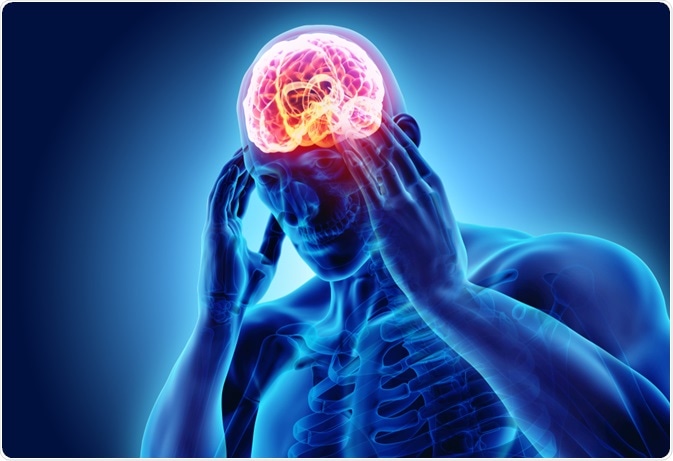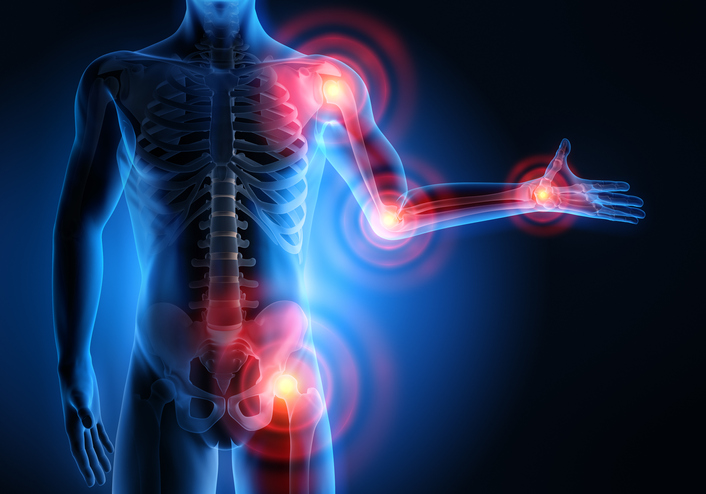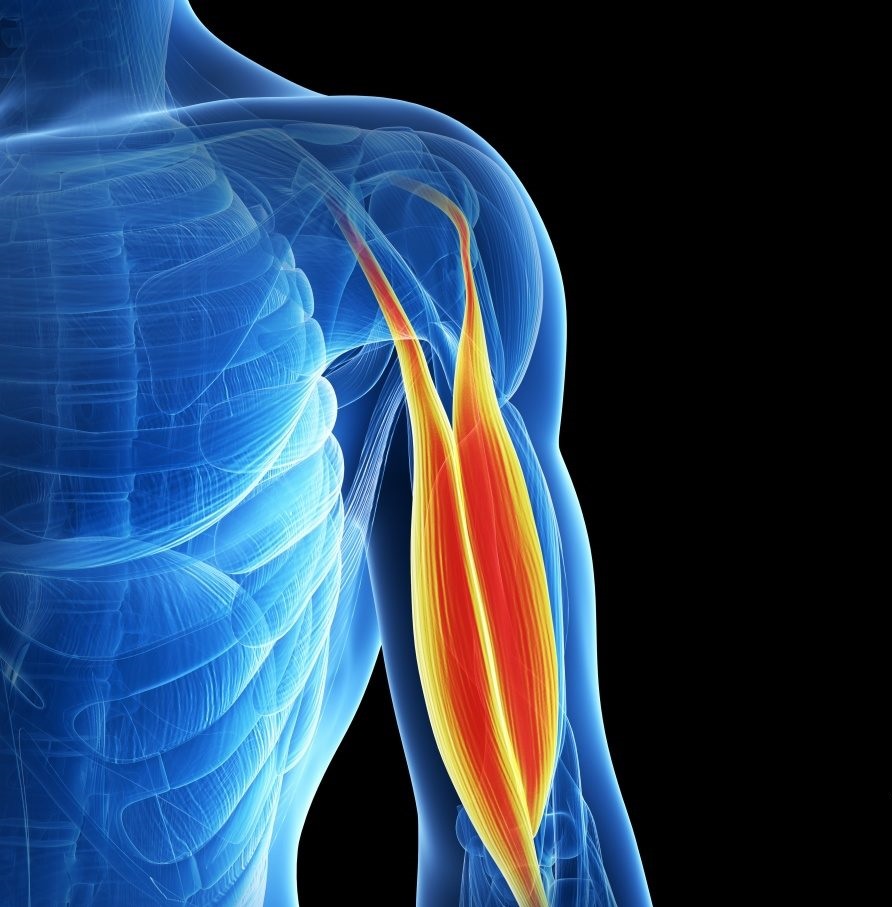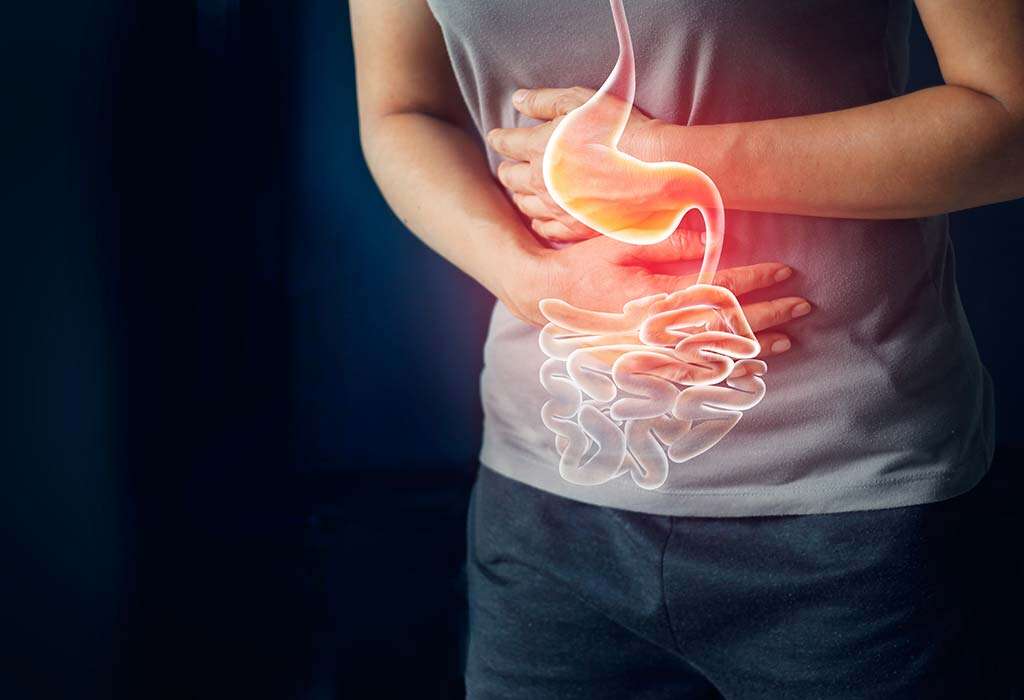What is a hormonal imbalance?
It can be referred to as the situation when your body secretes little or too much of some vital hormones needed for normal body functions. The endocrine glands are responsible for producing hormones, which are the body’s chemical messengers.
These hormones are released into the bloodstream when triggered by certain factors and communicate with the body’s tissues and organs to deliver certain important functions. Endocrine glands are the collective name for the organs responsible for releasing these major hormones into the bloodstream.
What are the endocrine glands and functions?
The endocrine glands are the powerhouse of the hormones; they are also responsible for regulating how much hormone is released to the bloodstream. They control major body processes and functions such as reproduction, growth and maturity, metabolism, sexual functions, and blood sugar levels.
A list of glands or organs making use of the endocrine glands are the pituitary gland, suprarenal or adrenal gland, thyroid gland, parathyroid gland, pancreatic duct, pineal gland, hypothalamus, and gonad gland (ovaries and testes).
How can hormonal imbalances be diagnosed?
certain diagnosis can be done to determine or discover the level of hormonal abnormalities in the bloodstream; they include but are not limited to
- Blood tests Most hormones can be detected through blood samples; they can be used to determine certain hormone levels in the blood, such as cortisol, thyroxine, estrogen, and testosterone.
- An ultrasound scan can be used to get images of some vital glands or organs to determine the cause of hormonal imbalance or ailment
- A thyroid scan uses the emission of gamma rays from radioactive iodine to discover hypo or hyperthyroidism, cancer growth, or any other related abnormal growths
- MRI scan (magnetic resonance imaging) Almost all hormones are responsive to MRIs, which means that they can be significant in detecting abnormal hormone levels in the body.
- A biopsy can be vital in finding imbalances in certain hormone levels; it involves collecting samples of tissues or cells from an affected area in the body for further examination and diagnosis
- The sperm count test involves collecting samples of semen to determine levels of hormone exposure and treatment
- Urine and saliva test: This test can be used to determine hormone imbalances, including reproductive hormones, pituitary hormones, thyroid hormones, and adrenal hormones.
- A CT scan is an excellent tool for diagnosing problems in soft tissues, blood vessels, and other body parts that can’t be seen with an X-ray or ultrasound
What are the symptoms of hormonal imbalance?
1)Weight Gain:
Studies have shown that excessive levels of cortisol in the bloodstream cause increased appetite, which leads to sugar cravings. This can be caused by a sudden drop in leptin levels in the body.
Leptin in the body is responsible for the long-term regulation of energy balance and suppression of food intake. rapid weight gain can signal an Overactive thyroid, also known as hypothyroidism

2) Sudden weight loss:
When the thyroid gland becomes less active due to certain factors or conditions, it affects the body’s ability to maintain body weight, leading to a rapid loss of body fat. Unexplained weight loss is a major symptom of hormonal imbalance.

3. Insomnia: Stress, starvation, ulcers, asthma, depression and anxiety, alcoholism, hard drugs, medications, and work schedules can all contribute to sleeping disorders.
The main hormone that affects how we sleep is melatonin, which the pineal gland produces. The mechanism happens when the tiny suprachiasmatic nucleus (SCN) of the hypothalamus sends messages to the pineal gland, which triggers the release of the chemical melatonin.
Melatonin makes you feel sleepy and ready for rest. Fluctuations in the levels of testosterone, cortisol, progesterone, and melatonin can cause sleeping difficulties, even though having insomnia can trigger more hormonal imbalances.

4)Fatigue:
Insomnia can also lead to fatigue; both low cortisol and thyroxine can cause depleted energy levels and extreme weakness. When these hormones aren’t secreted enough, which may be due to excessive progesterone, it leads to a major drop in the body’s metabolism, causing a depleted energy level.

5)Depression
A drop in estrogen levels in the blood can trigger depression or mood swings. Estrogen is a sex hormone found in both males and females, although ladies have higher estrogen levels than men do. The ovaries, testes, fat cells, and adrenal glands produce estrogen. Body chemicals such as serotonin, norepinephrine, and a neurotransmitter known as dopamine are all affected by estrogen.

6)Constant Headaches:
Headaches may be a major symptom of many ailments or disorders in the body system but can also be caused by a sudden drop in estrogen levels. This is mostly seen in women, especially before or during menstruation. The factors that may trigger drops in estrogen levels may be due to menopause, puberty in teenage girls, and pregnancy.

7)Hair loss:
Hair loss is one of the primary causes of hormonal imbalances. It can be common in older men and women but can still happen in the early stages of life if it is severe. When the body is low in estrogen or testosterone, it may affect several other hormones, causing hair loss, even though abnormalities in the thyroid glands can also lead to hair loss.

8)Low Sex Drive
Estrogen, progesterone, and testosterone are the major androgens responsible for arousal and libido regulation in both males and females. When there is a significant drop in these precious androgens, it will result in less interest in sexual activities.

9)increased thirst:
ever wondered why you are always thirsty? Abnormally low levels of anti-diuretic hormones(ADH) can affect how much water you consume. this hormone regulates water levels and intake in the body. it can be affected by both estrogen and progesterone. abnormal thirst may be a reason to see your doctor.

10)Joint pain and swelling
Hormonal imbalances may also contribute to joint pain and inflammation when there are low levels of testosterone or estrogen, this is majorly caused by aging or genetics.

11)muscle weakness
hormones like estrogen, testosterone, and progesterone do have effects on muscle functions, and low levels of these hormones can disrupt metabolic processes leading to muscle weakness. Muscle weakness can be localized to one part of the body or may affect many muscles at once.

Digestive issues
Abnormal levels of estrogen and progesterone in the body can cause digestive difficulties like stomach pains, bloating, and diarrhea. these hormones respond to the receptors in the intestinal linings, receptors communicate with each other in the guts

Can hormonal Imbalance be treated?
There are several methods one can follow to cure hormonal imbalance, But natural remedies may not be the only way to cure hormonal imbalance; there are other several procedures and treatments including Therapies like synthetic hormone replacement therapy to balance hormone levels in the body
What are natural ways of balancing hormones?
Some important Natural ways of balancing your hormones are Getting enough rest, Engaging in stress management activities, including Aphrodisiacs in your daily diet, exercising, including more protein in meals, Avoid refined sugars and carbohydrates, Quit Smoking, Drink more green tea, maintain healthy probiotics in the gut and Avoid drinking from plastic/rubber containers.
- Getting enough rest For optimal hormone health, one should get a quality night’s rest ranging from 7-8 hours. Not getting enough rest can trigger an imbalance in hormones such as insulin, cortisol, leptin, ghrelin, and adrenaline.
- Engaging in stress management activities like vacationing, road trips, snowboarding, or whatever you love doing for fun can help boost hormone health to a reasonable extent by bringing the stress hormone known as cortisol back to normal levels.
- Exercise regularly improves blood flow, thereby facilitating proper hormone and nutrient circulation in the body, it also promotes insulin sensitivity, which reduces the chances of being diabetic.
- Avoiding refined sugars and carbohydrates promotes general hormone health, studies have shown that refined sugars and carbs stress the adrenal glands. Eating refined carbs and sugars leads to blood sugar spikes. These spikes lead to the release of cortisol and adrenaline, which is detrimental to the body.
- Quit Smoking for a healthy endocrine system, nicotine in cigarettes can trigger endocrine imbalance, When you quit smoking Your estrogen and progesterone levels will gradually return to normal. declined levels of estrogen can cause many problems, such as dry skin, thinning hair, and mood swings.
- Drink more green tea to boost your metabolism. Studies have shown that green tea contains theanine, a compound that reduces the release of cortisol, which is a stress hormone.
- consume more fibrous foods for better hormone regulation and balance, a diet without fiber is not considered to be balanced, Fiber increases insulin sensitivity and stimulates the production of the right hormones to make you feel full.
- maintaining gut health is vital because probiotics ferment fiber to produce short-chain fatty acids like propionate, butyrate, and acetate, which help to regulate body weight by boosting calorie metabolism, Butyrate and acetate are also responsible for appetite suppression to regulate excessive body fat.
- Avoid drinking in plastic containers because they contain endocrine disruptors known as Bisphenol-A(BPA) majorly used in the manufacture of plastics and resins, they can interfere with fertility and reproduction and also cause havoc to the body’s immune response. They seem to act like synthetic estrogen which can be deadly by inducing hormonal imbalance.
- Don’t microwave foods, microwaved foods can alter the production of both male and female hormones. Eating microwaved food can excessively contribute to PCOD(Polycystic Ovarian Disease) and infertility. It also affects the maintenance of hormonal balance in men and women
- Consuming enough protein per day provides your body with essential amino acids which can’t be produced by the body alone, the body requires amino acids to produce hormones known as peptides. Peptide hormones balance psychological processes like metabolism, stress, reproduction, growth, and hunger regulation
- Providing enough iodine in the diet ensures proper regulation of thyroxine, and also prevents complications emanating from low thyroxine production and hypothyroidism
- Consume adaptogens which adapt to each body’s circumstances and balance hormones depending on that person’s needs. adaptogens are hormone regulators and act in the opposite direction either increasing the deficient hormone or decreasing the body’s production of the excessive hormone. an adaptogen may include but is not limited to Ashwagandha for stress and anxiety management, others may include maca, red raspberry leaf, Milk Thistle, and oat straw
- Include aphrodisiacs in your daily diet to boost sexual health. The levels of sex hormones in your body affect your sexual health, stamina, and arousal. eating enough aphrodisiacs can promote sexual hormones and keep them in balance to enhance sexual performance. some aphrodisiacs include Avocado, dates, honey, and strawberries.
Examples of synthetic Hormones?
Synthetic hormones administered in the form of medicines include but are not limited to methyltestosterone, trenbolone acetate, aromatase, Epiphone, oxytocin, metabolites, nandrolone, diethylstilbestrol, fludrocortisone, norethindrone, cortisone, melengestrol acetate, and zeranol. Synthetic hormones can also be referred to as bioidentical hormones because they are designed to be almost identical to the hormones found in the body.
What are the Available synthetic Treatments for hormonal imbalance?
Hormone Replacement Therapy (HRT): HRT is a common treatment for women with menopausal symptoms resulting from reduced estrogen and progesterone levels. Menopause is a natural process that typically occurs in women around the age of 50 when their ovaries cease egg production and menstruation ceases. As a result, estrogen and progesterone levels decrease, causing a variety of symptoms, including hot flushes, vaginal dryness, and mood swings. HRT may involve supplementing the body’s natural hormone levels with estrogen and/or progesterone in pill, patch, or cream form to ameliorate these symptoms. However, HRT is not suitable for all women, and the risks and benefits should be discussed with a physician.
Thyroid hormone replacement: The thyroid gland generates hormones that assist in regulating metabolism and other bodily functions. Insufficiency in thyroid hormone production can result in symptoms such as fatigue, weight gain, and depression. To supplement the body’s natural thyroid hormone levels, hormone replacement therapy may be necessary for this situation. To replace the absent hormone, synthetic thyroid hormones are typically administered orally in the form of pills.
Medications to regulate insulin levels: Insulin resistance and high insulin levels are common causes of hormonal imbalances, particularly in individuals with polycystic ovary syndrome (PCOS). Insulin resistance and high insulin levels are treated with insulin-regulating medications. PCOS is a hormonal disorder that can produce symptoms such as irregular periods, infertility, and weight gain in women of reproductive age. Insulin resistance and elevated insulin levels are common characteristics of PCOS, and metformin can help regulate insulin levels and alleviate PCOS-related symptoms. Metformin functions by decreasing insulin resistance and enhancing the body’s capacity to utilize insulin effectively.
Surgery: In some instances, surgery may be required to treat hormonal imbalances. For instance, women with estrogen-sensitive breast cancer may endure surgery to remove their ovaries, the body’s primary estrogen source. Ovary removal can help diminish estrogen levels and slow the progression of breast cancer that is sensitive to estrogen. However, surgery is typically reserved for more severe cases and should be discussed with a physician.
Lifestyle changes: Changing your lifestyle can also help regulate hormones and alleviate the symptoms of hormonal imbalances. A diet rich in whole foods and low in processed foods and sugar, for instance, can help regulate insulin levels and reduce inflammation. Exercise and stress management techniques like yoga and meditation can also help reduce tension and enhance mood, which can have a positive effect on hormonal balance.
The appropriate treatment for a hormonal imbalance will depend on the underlying cause and the individual’s unique circumstances. Based on a comprehensive evaluation of the individual’s symptoms, medical history, and lab tests, a healthcare professional can assist in determining the optimal treatment plan.
What are the types of hormonal imbalance and novel treatment options?
1) Hypothyroidism: This is a disorder in which the thyroid gland does not generate enough thyroid hormone, resulting in fatigue, weight gain, and depression. Hypothyroidism treatment options include:
Levothyroxine is a synthetic thyroid hormone that can be taken orally as a tablet. It aids in the replacement of thyroid hormone and the relief of hypothyroidism symptoms.
2)Hyperthyroidism: This is a disorder in which the thyroid gland generates an excessive amount of thyroid hormone, resulting in symptoms such as weight loss, anxiety, and rapid heartbeat. Treatment options for hyperthyroidism include Antithyroid drugs: These medications help limit the production of thyroid hormone in the thyroid gland and are used to treat hyperthyroidism. They can be taken orally as pills and may be combined with other treatments. Radioactive iodine therapy: entails swallowing a radioactive iodine pill that is absorbed by the thyroid gland and aids in the destruction of hyperactive thyroid cells. This treatment is typically long-term and can result in hypothyroidism, which can be controlled with thyroid hormone replacement medication. Surgery: In some situations, surgery to remove all or part of the thyroid gland may be required.
3)Polycystic ovary syndrome (PCOS): PCOS is a hormonal illness that affects women of reproductive age and can result in symptoms such as irregular periods, infertility, and weight gain. PCOS treatment options include:
Birth control Pills: Oral contraceptives can help regulate menstrual periods and lower androgen levels in the body, which can relieve PCOS symptoms. Anti-androgen medications: These drugs serve to prevent the effects of androgens, which are male hormones that can be increased in PCOS women. Anti-androgen drugs may aid in the treatment of symptoms such as excessive hair growth and acne. Metformin: This drug aids in the regulation of insulin levels in the body and may be beneficial for women with PCOS who have insulin resistance.
4) Menopause: Menopause is a natural process that occurs in women around the age of 50 when their ovaries stop releasing eggs and their menstrual periods cease. As a result, estrogen and progesterone levels fall, causing a slew of symptoms such as hot flashes, vaginal dryness, and mood swings. Menopause treatment options include:
- Hormone replacement therapy (HRT) This is the use of estrogen and/or progesterone in pill, patch, or cream form to replenish the body’s natural hormone levels and relieve menopausal symptoms.
- Non-hormonal treatments: Antidepressants and blood pressure drugs, for example, can help with hot flashes and other menopausal symptoms.
It is crucial to remember that the optimal treatment for a hormone imbalance will be established by a healthcare professional based on the individual’s circumstances.
Conclusion: Hormones are the messengers of the body and should be taken care of regularly, go for tests when any of these symptoms appear unexplained. Symptoms may vary depending on the severity of the condition, Don’t hesitate to see your doctor when in discomfort.
This content is for educational purposes only and not a replacement for a qualified medical practitioner.
